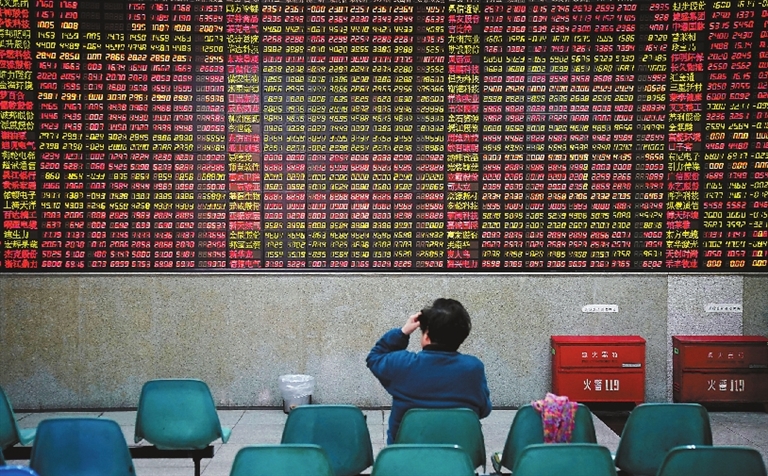
INDEX provider FTSE Russell could give a greater weighting to stocks listed on the Chinese mainland than rival MSCI if it decides to include them in its flagship indices next month, its chief executive said. MSCI this year became the first global index provider to force its passive fund followers into Shanghai and Shenzhen-listed stocks — a milestone in the opening up of Chinese mainland markets to international capital. The growing financial might of mainland firms is hard to ignore. Shanghai and Shenzhen-listed A-share companies are worth a combined US$7.1 trillion in market capitalization — and together can be considered the world’s second-largest equity market after the United States. In MSCI’s flagship emerging markets index, A shares only account for 0.78 percent — part of a gradual, phased inclusion to avoid sudden market moves. Asked whether FTSE Russell’s A-share weighting could be bigger, CEO Mark Makepeace said: “I think that’s a possibility.” “We’ll only do it if we have the support of the big investors,” he said, adding the firm was still consulting with investors and other stakeholders. The FTSE emerging markets index currently has a slightly higher total proportion of Chinese mainland stocks — mainly those listed in Hong Kong and New York — at 32.2 percent versus MSCI’s 31.2 percent. The growing popularity of passive funds which track indices has made index providers powerful arbiters of market trends. Trillions of dollars are benchmarked against MSCI and FTSE Russell indices. FTSE Russell estimates that about 40 percent of passive funds tracking global indices and global emerging market indices follow its benchmarks and the rest follow MSCI. MSCI did not immediately respond to a request for comment. The China Securities Regulatory Commission (CSRC) said last week that it would “actively support the inclusion of A shares in the FTSE Russell international index and raising the proportion of A shares in the MSCI index.” China has recently made a raft of decisions giving foreigners greater access to its markets. These include the easing of foreign investment curbs in the banking, auto and resources sectors. In June, China lifted a monthly cap on foreign fund manager outflows which investors had frequently cited as a sticking point for their China interest. Makepeace said investors expected foreign ownership of listed Chinese companies, currently limited to 30 percent, to rise at some point. “I think the question for people like FTSE Russell and MSCI is not whether we include A shares but it’s how much. Over the next five to seven years, we have to get to that foreign ownership limit — and that’s only going to go up,” he said. Makepeace said the next stage for China was for institutional investors to help shape corporate governance practices. “Governance is going to follow international investors coming into this market. You’re not going to get the engagement (with management) if you don’t have the ownership,” he said. FTSE Russell began including A shares in 2015 but only via a parallel set of indices — one with A shares, one without — that allowed investors to include the mainland if they chose. Its biggest fund manager client, Vanguard, began to transition to the new indices that year, but few other big investors followed. There are nearly 1,900 companies listed on the Shanghai and Shenzhen main boards, ranging from China’s giant banks to piano makers. Both MSCI and FTSE Russell weight their indices by companies’ market capitalization. The A-share firms given the largest weighting by MSCI include Shanghai Electric Group, Zhangzhou Pientzehuang Pharmaceutical Ltd. and HLA Corp. (SD-Agencies) | 
